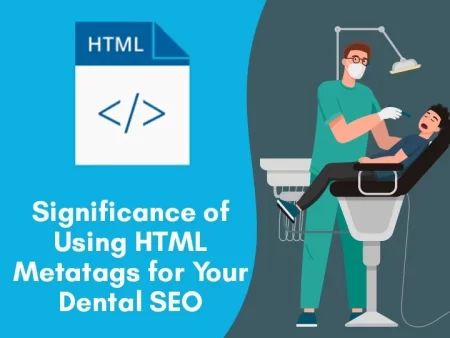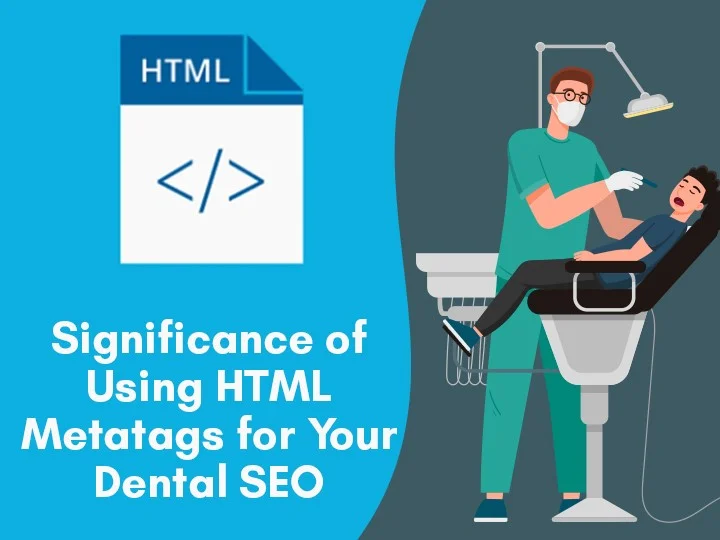 Meta tags are significant as they affect the way your website will appear in the SERPs. They also affect the number of people that will be inclined to click their way through to your dentist website. So, these meta tags are responsible for the engagement rate and traffic that affects the dental SEO and you’re ranking. Even though some meta tags will not have a direct effect on the website ranking they are relevant to how your website will appear in the digital ecosystem. They can also be a factor in the case of non-conventional searches such as Google image search, Knowledge Graph, and voices.
Meta tags are significant as they affect the way your website will appear in the SERPs. They also affect the number of people that will be inclined to click their way through to your dentist website. So, these meta tags are responsible for the engagement rate and traffic that affects the dental SEO and you’re ranking. Even though some meta tags will not have a direct effect on the website ranking they are relevant to how your website will appear in the digital ecosystem. They can also be a factor in the case of non-conventional searches such as Google image search, Knowledge Graph, and voices.
About HTML meta tags
Meta tags are certain pieces of information that tell the various search engines and the users viewing the website more about the pages and the info contained in them. These meta tags include,
- Meta description: This is the description of the content on a page.
- Title tags: These are about the page title and it has to be unique for the pages you will publish.
- Robots: They are used for indicating the content that you wish to <nofollow> or <noindex>.
- Viewport tag: This will affect the way your content will appear on different mobile devices.
- Canonical tags: They are utilized for specifying the principle and primary versions of a page.
- Hreflang tags: It permits the search engines to identify the country and language where the content will be showcased when you are catering to an international audience.
- Content-type: This will affect how your pages will be rendered in the eyes of a browser.
- Open graph tags: They are utilized for specifying the assets that appear in the image and title while sharing the links on social media websites.
These meta tags have a different level of significance for various brands depending on the kind of content being developed and how you are looking to get the content indexed. You need to keep in mind that the meta tags are pieces of code and, the recommendation is to not include the tags that are not required and just include those that are significant for your target.
Using meta tags
So, how to use the meta tags? Many things such as meta description length and title tags affect the relevance of your website in the SERPs. When the searchers receive their results, they are going to see the website title and a short description of the content – meta description. All users will scan this info to decide whether they will click on a result. Inclusion of your main keywords naturally in these sections will augment the website relevance in the SERPs and improve the click-through rate. As the dental SEO title tag also appears in the web page tag, when the users will have several pages open the title can get the users to click back to your content and engage with the page.
By using other tags such as viewport tag and content type you are helping Google to understand the content type better. The viewport tags will make sure that your content is providing the mobile users with a smooth and positive experience. As the mobile update from google and recent discussions about a drift towards mobile-first algorithms, most brands are looking to make sure that their content is catering to the mobile users in all possible ways.
Filling all these tags will help in making sure that the content is appropriately indexed and is shown to the correct audience. When there are any discrepancies in the content it will hurt your rankings and also the website reputation therefore meta tags are extremely important for dental SEO. For professional help in Clearwater, FL area, get in touch with Affordable Dental SEO.

